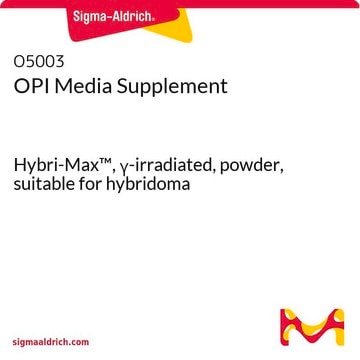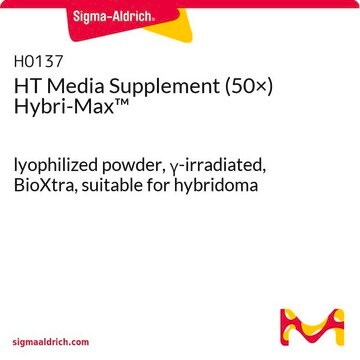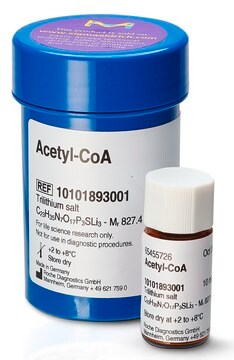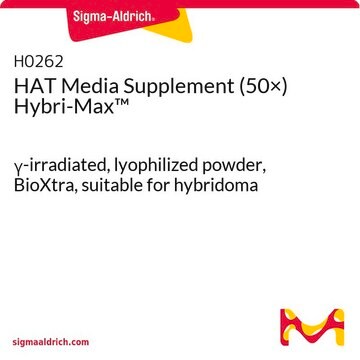O9504
Oxaloacetic acid
powder, suitable for hybridoma
Synonym(s):
2-Oxosuccinic acid, Ketosuccinic acid, Oxalacetic acid, Oxobutanedioic acid
About This Item
Recommended Products
Assay
≥97% (HPLC)
Quality Level
form
powder
technique(s)
cell culture | hybridoma: suitable
impurities
endotoxin, tested
solubility
H2O: 100 mg/mL
storage temp.
−20°C
SMILES string
OC(=O)CC(=O)C(O)=O
InChI
1S/C4H4O5/c5-2(4(8)9)1-3(6)7/h1H2,(H,6,7)(H,8,9)
InChI key
KHPXUQMNIQBQEV-UHFFFAOYSA-N
Looking for similar products? Visit Product Comparison Guide
Application
related product
Signal Word
Warning
Hazard Statements
Precautionary Statements
Hazard Classifications
Eye Irrit. 2
Storage Class Code
11 - Combustible Solids
WGK
WGK 1
Flash Point(F)
Not applicable
Flash Point(C)
Not applicable
Personal Protective Equipment
Certificates of Analysis (COA)
Search for Certificates of Analysis (COA) by entering the products Lot/Batch Number. Lot and Batch Numbers can be found on a product’s label following the words ‘Lot’ or ‘Batch’.
Already Own This Product?
Find documentation for the products that you have recently purchased in the Document Library.
Customers Also Viewed
Our team of scientists has experience in all areas of research including Life Science, Material Science, Chemical Synthesis, Chromatography, Analytical and many others.
Contact Technical Service












